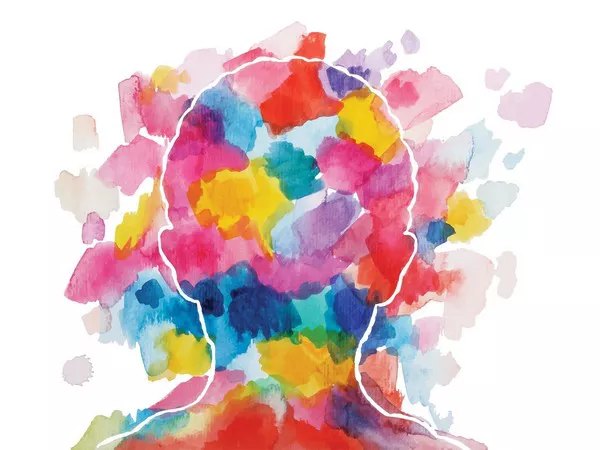In the intricate landscape of mental health, understanding the dynamics of relationships involving individuals with Borderline Personality Disorder (BPD) and Narcissistic Personality Disorder (NPD) is of paramount importance. These disorders, characterized by pervasive patterns of behavior, cognition, and emotional regulation, can profoundly impact interpersonal connections. This article aims to explore the intricate interplay between BPD and NPD, shedding light on the challenges faced by individuals in such relationships and offering insights into effective coping mechanisms.
Understanding BPD and NPD
Before delving into the complexities of their interactions, it is essential to grasp the fundamental characteristics of BPD and NPD. BPD is marked by intense emotional instability, fear of abandonment, and an unstable self-image. Individuals with BPD often struggle with impulsivity, self-harm, and a chronic sense of emptiness. On the other hand, NPD is characterized by an exaggerated sense of self-importance, a lack of empathy, and a constant need for admiration. Those with NPD often exhibit manipulative behaviors and a grandiose sense of entitlement.
The Attraction and Repulsion Dynamic
One of the intriguing aspects of BPD and NPD relationships is the initial magnetic attraction between individuals with these disorders. Both personalities may find certain aspects in each other that fulfill their unmet needs. Individuals with BPD might be drawn to the confidence and assertiveness of those with NPD, while the latter may be enticed by the emotional intensity and passion exhibited by individuals with BPD. However, this attraction can quickly transform into a volatile and tumultuous dynamic, marked by power struggles, emotional volatility, and a constant push-pull dynamic.
The Role of Idealization and Devaluation
Central to understanding the dynamics of BPD and NPD relationships is the cycle of idealization and devaluation. In the initial stages, individuals with BPD may idealize their partner with NPD, placing them on a pedestal and attributing unrealistic qualities to them. This idealization phase is often intense but fragile. As the relationship progresses, it is not uncommon for individuals with BPD to shift abruptly to the devaluation phase, perceiving their partner as uncaring or hostile. This rollercoaster of emotions can lead to frequent conflicts and contribute to a sense of instability within the relationship.
Manipulation and Control Dynamics
Both BPD and NPD individuals are prone to manipulative behaviors, albeit in different ways. Individuals with NPD may manipulate to maintain control and secure the admiration they crave, while those with BPD may resort to manipulation as a means of coping with their fear of abandonment. These manipulative tactics can create a toxic cycle, further intensifying the challenges faced by both parties. Recognizing and addressing these manipulation dynamics is crucial for establishing healthier communication patterns.
Impact on Emotional Well-being
The emotional toll of a BPD and NPD relationship is profound. Individuals with BPD may experience heightened levels of anxiety, depression, and feelings of inadequacy due to the constant emotional turbulence. Conversely, those with NPD may struggle with frustration and anger when their need for admiration is not met or when they perceive criticism. The reciprocal impact of these emotional struggles can lead to a deteriorating mental health landscape for both individuals involved.
Navigating Challenges and Seeking Treatment
While BPD and NPD relationships pose unique challenges, it is essential to acknowledge that with dedication and professional intervention, positive outcomes are possible. Couples therapy, individual counseling, and support groups can offer valuable tools for enhancing communication, fostering empathy, and building coping mechanisms. Establishing clear boundaries, practicing effective self-care, and promoting emotional regulation skills are crucial steps in creating a more stable and fulfilling relationship.
The Importance of Individual Growth
For individuals involved in BPD and NPD relationships, personal growth becomes a cornerstone for positive change. Both partners must engage in self-reflection, acknowledging and addressing their individual challenges. Developing a sense of self-awareness, emotional regulation, and building healthy coping mechanisms can contribute significantly to the overall well-being of each person. Encouraging personal growth within the relationship fosters an environment where both individuals can thrive independently and together.
See Also:Antisocial Personality Disorder: Causes, Symptoms and Treatment
Case Studies and Success Stories
Examining real-life case studies and success stories provides valuable insights into the potential for positive transformation within BPD and NPD relationships. Stories of couples who have navigated the challenges, sought professional help, and committed to personal growth offer hope and inspiration. These examples underscore the importance of resilience, commitment, and a willingness to confront and address the complexities inherent in such relationships.
Conclusion
In conclusion, understanding the complex interplay between Borderline Personality Disorder (BPD) and Narcissistic Personality Disorder (NPD) in relationships is crucial for fostering empathy, resilience, and positive outcomes. Acknowledging the challenges, dynamics, and potential for personal growth within these relationships allows individuals to navigate the intricate terrain with greater awareness and purpose. By promoting effective communication, seeking professional help, and fostering individual growth, it is possible to transform the tumultuous landscape of BPD and NPD relationships into a more stable and fulfilling journey for both partners.
Related Topics:
Schizophrenia Untreated: Consequences and Controversies
Is OCD and Schizophrenia Related?
Bipolar II Disorder: Behaviors and Characteristics


